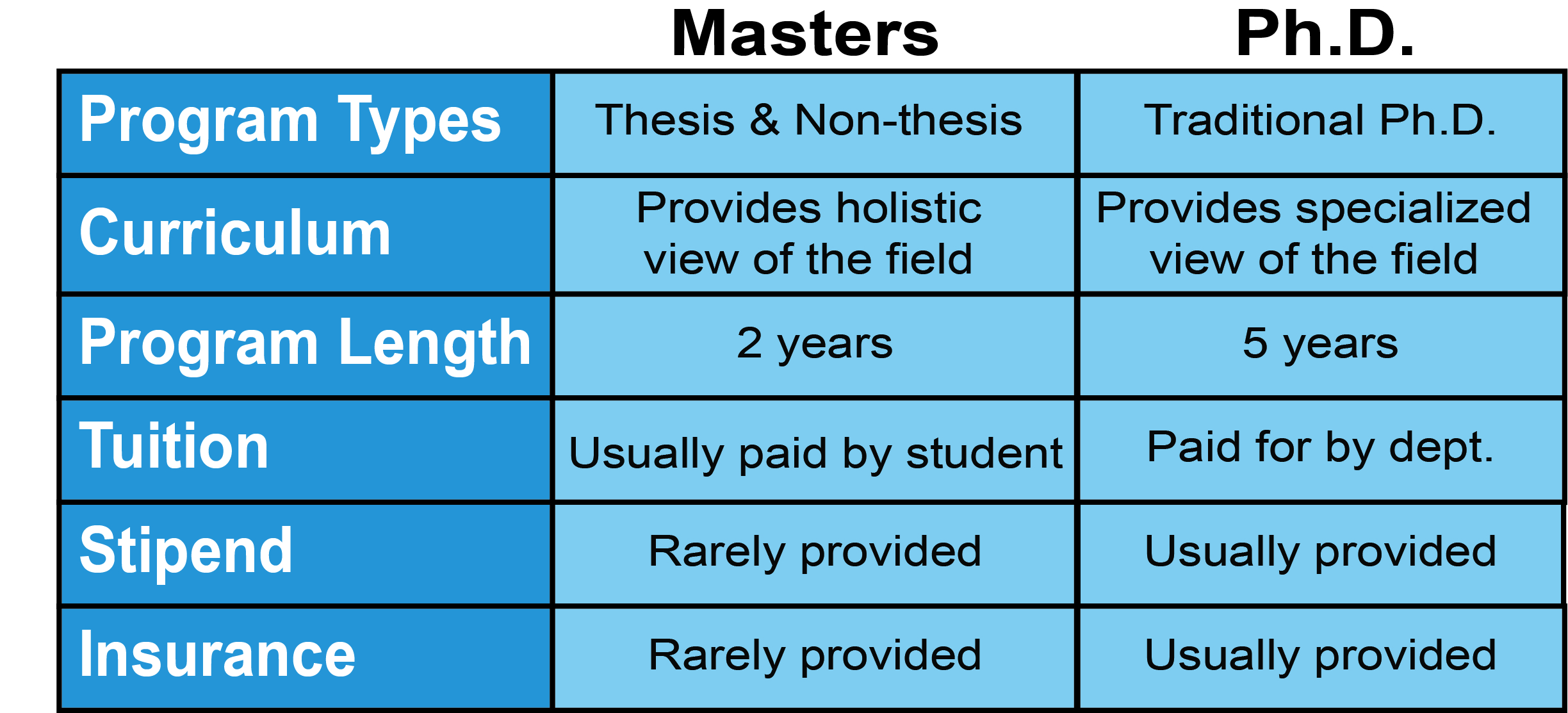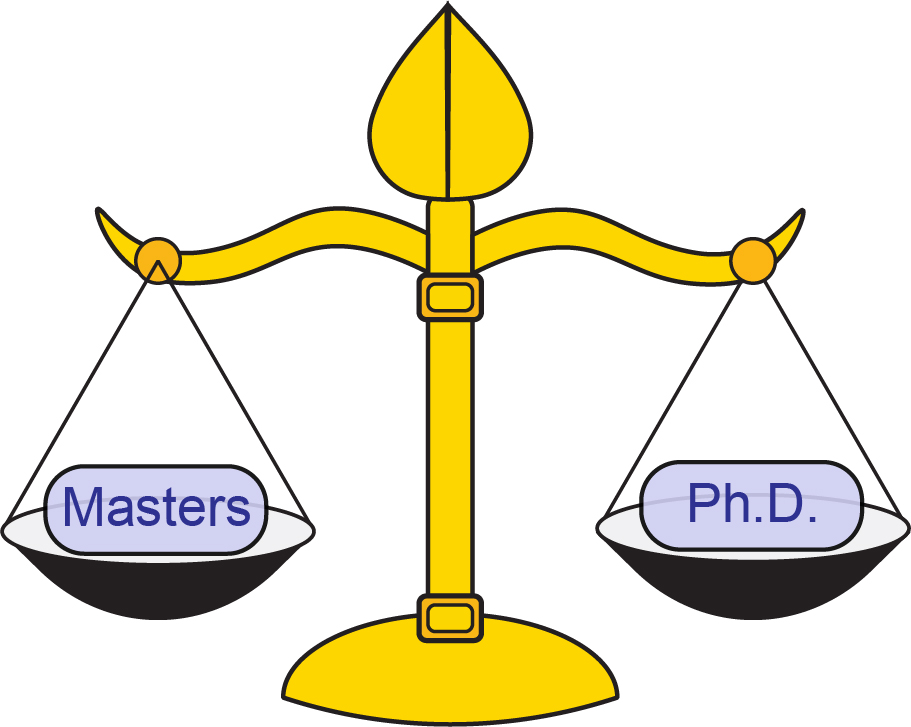Comparing Masters and Ph.D. Programs
Comparing Masters vs. Ph.D. Programs
- Ph.D. degrees are paid for by the school’s chemistry department and offer stipends for living expenses. To receive these stipends, you are typically required to teach an undergraduate lab or lecture course during your first year. Consequent years, you may teach (i.e. teaching assistantships funded through the department) or may not (i.e. research assistantships funded through your PI or a fellowship), depending on your circumstances.
- Master degrees can also be paid for by the school’s chemistry department, but this is less common. Most Masters programs that require you to pay out-of-pocket for tuition and student fees. For programs that are paid for, graduate students typically receive a stipend (generally lower than Ph.D. programs) and are generally required to teach for the entirety of their degree.
- Masters programs tend to be smaller and less common than Ph.D. programs.
Frequently Asked Questions about Masters vs. Ph.D. programs:

- Can I get my Ph.D. after I get my Masters?
- Absolutely! However, many schools will not give credit for your work at a terminal Masters program and you will be adding an additional 5 years onto your educational journey.
- Can I apply to get a Masters degree at a school that has a Ph.D. program?
- Probably not. Ph.D. programs strictly look for people looking to get their Ph.D.
- Can I exit a Ph.D. program early (i.e. after 2 years) and get my Masters?
- Absolutely! Sometimes people find that graduate school is not a good fit (for a variety of reasons!) and leave the program early with a Masters degree.
- Can I take a gap year? Can I complete a post-baccalaureate program first?
- Yes! Everyone has their own path and if you want a break between undergraduate and graduate school or more time to prepare; that is completely okay! See Post-baccalaureate Programs for information on post-baccalaureate programs.
- Can I apply after working for a few years?
- Of course! This is not the typical route, but everyone has their own path and may not go into graduate school right away.
- I’m already working a job in chemistry, but I don’t want to stop working. Can I apply?
- Yes! Some companies may even pay for you to go to graduate school. This is generally more common for Masters programs with a stipulation that the graduate program is nearby. If you are considering this option, you should communicate with your workplace regarding options, as this is less common, company-dependent and area-dependent.
How to Choose Which Program is Right for You? Frequently Asked Questions
Below are common questions that can help you navigate what graduate program fits your career and personal goals. These questions can help you determine whether you will need a Masters or Ph.D. to accomplish these goals.
- Do you want to become a professor?

- A Ph.D. program is the way to go!
- Do you want to go into industry?
- If yes, do you want to be in management and have a big say in your work?
- A Ph.D. program is probably the route for you.
- If yes, do you want to gain more skills and contribute to the discussion, but not lead it?
- A Masters degree is probably the route for you
- If yes, do you want to be in management and have a big say in your work?
- Do you want to gain more confidence in your research skills in a less intense program?
- A Masters degree might be the route for you.
- Do you want to become more competitive and boost your resume/skills for a Ph.D. program?
- A Masters degree might be the route for you to start with. Later on, you can apply to a Ph.D. program if you feel it is still a good fit.
- Are you not sure what you want to do after school, but know you want to learn more?
- Both Masters and Ph.D. programs options are great options. However, it is worth noting that a Ph.D. will provide increased flexibility and require less time overall than completing a Masters degree, followed by a Ph.D. If you are unsure whether to pursue a Ph.D. or Masters degree, you may find it better to pursue a Ph.D. program, as you can always leave a Ph.D. program if it is not a good fit for you.
